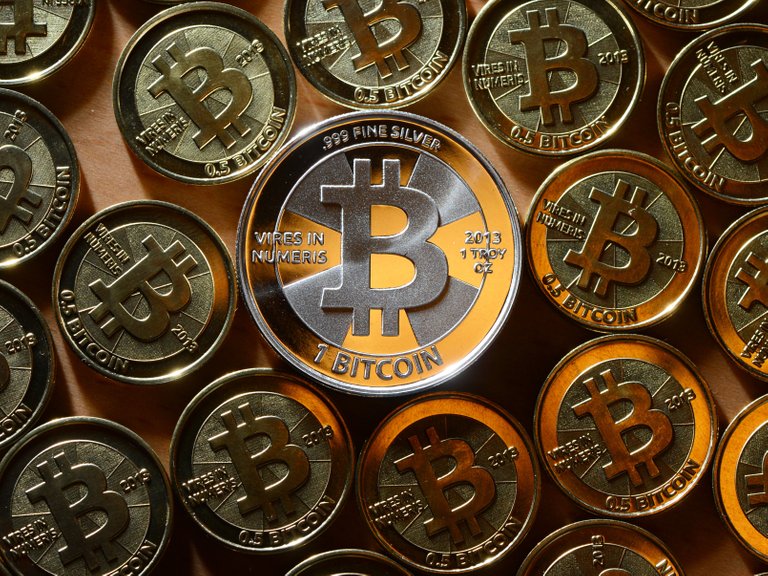A cryptocurrency with a potential to become perfect money. Where has it come from, what is it worth and what can you buy with it?

What is cryptocurrency?
Most people know very little about cryptocurrencies. Those who’ve heard the term tend to think that cryptocurrencies are merely virtual money or a web-based transaction system. However, cryptocurrencies are mainly a pioneering Internet technology. Its use as a means of exchange is only one possible application.
Cryptocurrency is a bookkeeping system relying on peer-to-peer networks. It is fully distributed and devoid of a central unit, organization or place that would control it. The system stores information about the ownership of arbitrary cryptocurrency units. The title to a given cryptocurrency is reflected in a wallet associated with an individual user. Complete control over the wallet is exercised by the holder of an encoded private key. Advanced mathematical and cryptographic methods are employed to prevent cryptocurrency duplication, counterfeiting or theft.
Cryptocurrencies are the first financial system invention developed outside of financial institutions without the slightest contribution on their part. It is novel, simple and fully independent of the existing financial system. What is more, it poses a threat to the status quo of that system.
Most countries around the world recognize cryptocurrencies as valid legal tender. As of to date, more than 200 cryptocurrencies are quoted on a dozen plus specialized stock exchanges. The most popular cryptocurrency is bitcoin.
What is bitcoin?
Bitcoin (abbreviated BTC) is the world’s first cryptocurrency or digital currency. Bitcoin transactions can be processed through public channels such as points of sale, currency exchange offices, banks and the Internet. The idea of bitcoin relies on blockchain. Blockchain is a fully open network accessible by means of simple applications, stock exchanges or through retail establishments. Having bitcoin data recorded in a blockchain prevents the duplication, theft or modification of even a single bitcoin. All transactions are public – their entire history is available for viewing and verification. The blockchains that serve as transaction ledgers cannot be counterfeited due to a cap placed on the number of bitcoins and protections that prevent their number from ever exceeding a predetermined ceiling. The transactions recorded in a blockchain are irreversible. The technology relies on peer-to-peer transactions and dispenses with the use of central computers and systems that manage and validate transactions. Every computer in the network may send and authorize transactions. Bitcoins may be recorded on a personal computer in a transaction ledger file or stored on an external service run by a third party. The number of bitcoins is fixed at 21 million, which limits inflation and deflation. Every bitcoin is subdivided into 100 million units called satoshi. Currently (as of November 2016), a bitcoin trades for approximately US$ 750. In the last four years, its exchange rate rose from ca. US$ 100.
Who is the father of bitcoin?
In December 2015, the US-based Wired and Gizmondo portals posted suggestions that the creator of bitcoin may be the Australian IT entrepreneur Craig Steven Wright, who himself acknowledged he had invented bitcoin under the pseudonym of Satoshi Nakamoto. The bitcoin community has refused to believe such reports. Its members are convinced that the pseudonym disguises a team of scientists, mathematicians and cryptographers. The one thing that I am confident about is that when Satoshi Nakamoto announced in October 2008 his idea of what he then called a new and entirely-peer-to-peer electronic cashless system that would eliminate third-party fiduciaries, he had no inkling he was starting a revolution that would wipe out the financial system as we know it today and transform its fundamental operating principles.
What transactions are supported by bitcoin?
Transaction ledgers can be used to store any transaction types. Thus, bitcoin may easily be made to represent a currency, property, real estate or shares. It is up to the users to decide what a given bitcoin unit stands for. Every bitcoin and satoshi is divided into individually identifiable and programmable parts. This means that users can ascribe diverse properties to each individual unit. The user can program a bitcoin/satoshi to be eurocents, company shares, kilowatt-hours of energy, election votes, loans or digital ownership titles. Therefore, the cryptocurrency is much more than just money and a means of settlement. Bitcoin can also be programmed to behave as needed. Bitcoins may self-cancel on a specified date, be exchanged or automatically return to the owner if the receiver fails to satisfy prescribed terms.
Can you buy a hamburger with bitcoin?
Bitcoins have a value because a steadily growing number of people are confident that the technology that underpins them, i.e. blockchain, also acquires value. Although with each year passing, bitcoin is becoming a fully-fledged means of exchange recognized by state governments, its value is being created by the buyers who choose to use bitcoins for their transactions. In other words, bitcoin is only worth as much as it is widespread. And although I can’t use it today to pay for a hamburger in any restaurant in London, Paris or New York City, I will most likely be able to do so in the future.
Hi! I am a robot. I just upvoted you! I found similar content that readers might be interested in:
https://norbertbiedrzycki.pl/en/what-are-bitcoins-all-you-need-know/